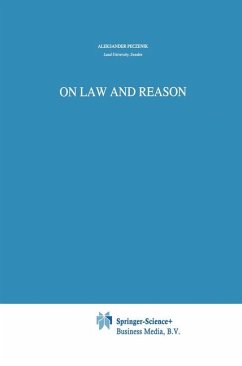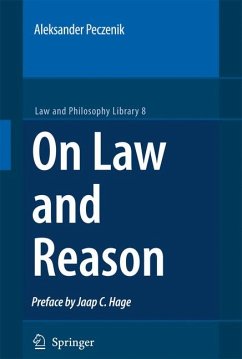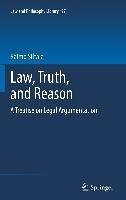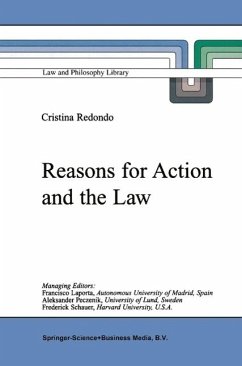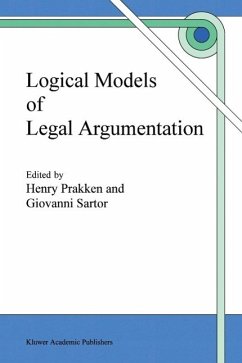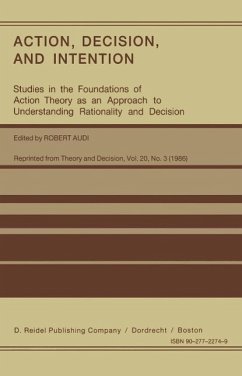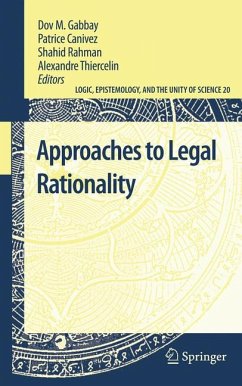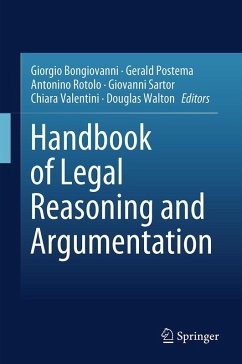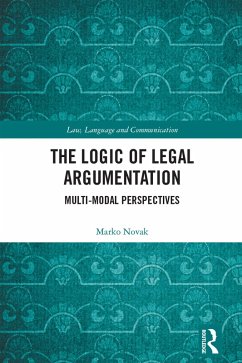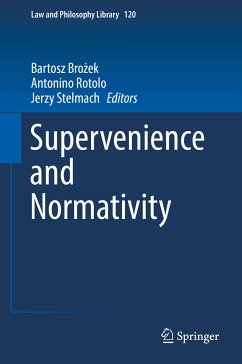IVR Announcements
"On the morning of September 19, 2005, Aleksander Peczenik died in Lund, Sweden. The community of legal theorists and philosophers of law has lost an outstanding scholar, and those of us who were privileged to count him as our friend have lost an extraordinary human being.
Aleksander Peczenik was born on November 16, 1937, in Kraków, Poland. In 1955, he took up studies in law at the Jagiellonian University in Kraków, where Kazimierz Opalek was one of his teachers. He completed his academic degrees in record time. In 1960, the year of his marriage to Irena Nowak, he received the master of law (LL.M.), in 1963 the doctoral degree (Iur. Dr.), and in 1966, he qualified himself for lecturing in law (Habilitation). Thus, at 29 years of age, he became professor at the Institute for Methodology of Law, in Katowice, then a branch of the University of Kraków. Three years later, in 1969, he left Poland, and he did so without having acquired any sort of position in the West, in those days a different world. His energy, intelligence, determination, and perseverance helped him to solve the problem. He wrote about 800 letters of application, and received two answers with concrete proposals. They came from Sweden and from Germany. Aleksander Peczenik decided to go to Stockholm, and he stuck to this decision after later receiving further offers. Alf Ross, who wrote the Foreword to Peczenik's Essays in Legal Theory, published in 1970, was in those days one of Peczenik's main supporters as he made his way to Scandinavia. From 1969 to 1975, he was Assistant Professor for Philosophy of Law in Stockholm. Alongside his teaching of the philosophy of law in Stockholm, he studied Swedish law so intensively that he was able to pass the Swedish Law Examination in 1975, the year he commenced work as a Senior Lecturer at the Law Faculty in Lund. He had now arrived, after Kraków, at his second location. In 1978,succeeding Tore Strömberg and Karl Olivecrona, he became Professor of Jurisprudence and Law-and-Computers in Lund. From 2003 to 2004, Peczenik served as Samuel Pufendorf Research Professor, and he retired in 2004. In 1983, he earned, in Lund, a doctoral degree (Ph.D.) in philosophy, another sign of his disposition to keep learning on every imaginable front. In 1987, he was awarded an honorary doctorate at the Law Faculty of the University of Lund, and in 1991, he was named as a foreign member of the Finnish Academy of Sciences. After his retirement in Sweden, Aleksander Peczenik embarked on a new career in his homeland. He became Professor of Legal Argumentation and Rhetoric at the Szczecin University in Poland. This new activity, which, we all expected, would culminate in 2007 at the 23rd IVR World Congress, to be held under his presidency in Kraków, the city of his biographical and intellectual origins, was interrupted by his sudden death. That things would come full circle was not to be granted to him. Aleksander Peczenik not only connected a mastery of his field with the permanent enthusiasm of a student, he also was an effective and engaged manager. He was Vice-President of the International Association for Philosophy of Law and Social Philosophy (IVR), and, from 2003 until his death, its President.
He not only lent his organizatorial talents and inspiring ideas to the IVR, but was Managing Editor of the 'Law and Philosophy Library' published by Springer, Co-Editor of Associations, and a member of the Editorial Committee of the Archives for Philosophy of Law and Social Philosophy and of Ratio Juris. Aleksander Peczenik's academic work, reflecting the Polish analytical tradition in legal philosophy with its concentration on logic, epistemology, and methodology, is broad and deep. He never abandoned analytical rigor in developing legal philosophy in new directions. Three points serve to characterize Aleksander Peczenik'slasting contributions to legal philosophy. The first point refers to his theory of transformation or 'jumps'. Knowledge is often backed by reasons that do not entail what is known. To this extent, knowledge and, with it, science, has a non-deductive deep-structure. In, for instance, The Basis of Legal Justification (1983), Aleksander Peczenik presented a comprehensive classification and profound analysis of the transformations necessary to law. Thanks to his efforts we have a kind of map of the creative steps indispensable to legal reasoning and legal knowledge. To perform a step or a 'jump' is one thing, its justification, correctness, or objectivity, another. In order to solve the problem of justification, Aleksander Peczenik developed - and this is the second main point of his work - a theory of coherence in law, which counts as one of the most advanced coherence theories of legal knowledge. An instructive short presentation is found in his paper 'A Coherence Theory of Juristic Knowledge' in On Coherence Theory of Law (1998). The third characteristic trait of Aleksander Peczenik's thinking lies in what might be characterized as reflective systematization. This element was present in his work from the beginning, but it emerged most impressively in his very recent work. An outstanding manifestation of his power of reflective systematisation is found in Vad är rätt (1995) as well as in his last major work, Scientia Juris. Legal Doctrine as Knowledge of Law and as a Source of Law (2005), the fourth volume of 'A Treatise of Legal Philosophy and General Jurisprudence' edited by Enrico Pattaro. With this volume, which gives a rich impression of his 'Passion for Reason' - so the title of his self-presentation in Luc J. Wintgens' volume The Law in Philosophical Perspectives from 1999 - Aleksander Peczenik in the year of his death presented all of us with a great gift. In writing these lines I look from time to time at the chair in mystudy where Aleksander Peczenik sat when we had our discussions during his visits in Kiel. Our first meeting was at Retzhof near Graz, where the Austrian Section of the IVR held a symposium on 'Philosophy and Sciences as Basis of Jurisprudence'. Thanks to a dated photography made by Zygmunt Ziembinski from Poznan, I know that this first meeting was on May 9, 1979. The first letter I received from Aleksander Peczenik is from May 14, 1979, the last was dated August 30, 2005. Happily, our contact over the years was not restricted to correspondence. The Retzhof conference was the beginning of a long string of meetings in Lund, Göttingen, Kiel, and in many other places around the world, the last being the 22nd World Congress in Granada, in May 2005. All of these meetings were special, many were indeed exciting, but one was so extraordinary that I will invite special attention to it here: it was the Amsterdam meeting together with Aulis Aarnio, in September 1980. There we completed the work on our joint article 'The Foundation of Legal Reasoning', published in three sections in Rechtstheorie in 1981. The idea for this project arose in December 1979, at a symposium on 'Argumentation in Legal Science' in Helsinki. Once we had decided on the project, Aleksander Peczenik, characteristically, poured all his energy into it. 'Top Priority' he wrote on a diagram of the relations between our theories as I had set them out, on December 12, on a sheet of paper, followed by: 'Send first draft to R.A. latest 25.12.79'. And he did so. After a string of meetings and a seemingly endless number of letters, the time was ripe. The conference in Amsterdam was one in which none of us was very much interested. Aleksander Peczenik turned up in his red BMW 320i in Göttingen, and gave me the fastest automobile trip I have ever had in my life. We discussed, all the way to Amsterdam, nothing but questions of legal theory. Aulis Aarnio was already in Amsterdam, and weimmediately began working in the Hotel Destine - and we worked for three days without interruption save for short periods of sleep. Thanks to Aleksander Peceznik's enthusiasm, we were as happy as we were tired. On the third day we left Amsterdam without having seen anything of it or the conference, but with a draft that was nearly in final form. Amsterdam was only one example of Aleksander Peczenik's extraordinary ability to electrify people and to move things along. It was not fortuitous that he was present when - in August of 1982, during a holiday that Robert S. Summers, Enrico Pattaro and he spent together with their wives in the Dolomites - the idea of the Bielefelder Kreis was born, an association of legal theorists who devoted their work to comparative methodological research. Under Robert S. Summers' and Neil MacCormick's direction, and after a number of meetings in the Centre for Interdisciplinary Studies in Bielefeld and some ten further meetings at other places, the Bielefelder Kreis produced, in 1991, Interpreting Statutes and, in 1997, Interpreting Precedents. It was no surprise that an individual with the abilities, the vision, the communicative competence, and the energy of Aleksander Peczenik would become President of the IVR. He transferred a good bit of his boundless energy and commitment to this organisation. I will mention only one of his many achievements: the forthcoming IVR Encyclopaedia of Jurisprudence, Legal Theory and Philosophy of Law. This electronic memory of legal theory and philosophy, world wide, is one of Aleksander Peczenik's lasting legacies. To lose a friend like Alek is a cause for sorrow. The sorrow is inseparable from my deepest gratitude. My life would have been deprived of something fundamental had I not met him, and our world would be a poorer place if Aleksander Peczenik had not been a part of it."
Robert Alexy
